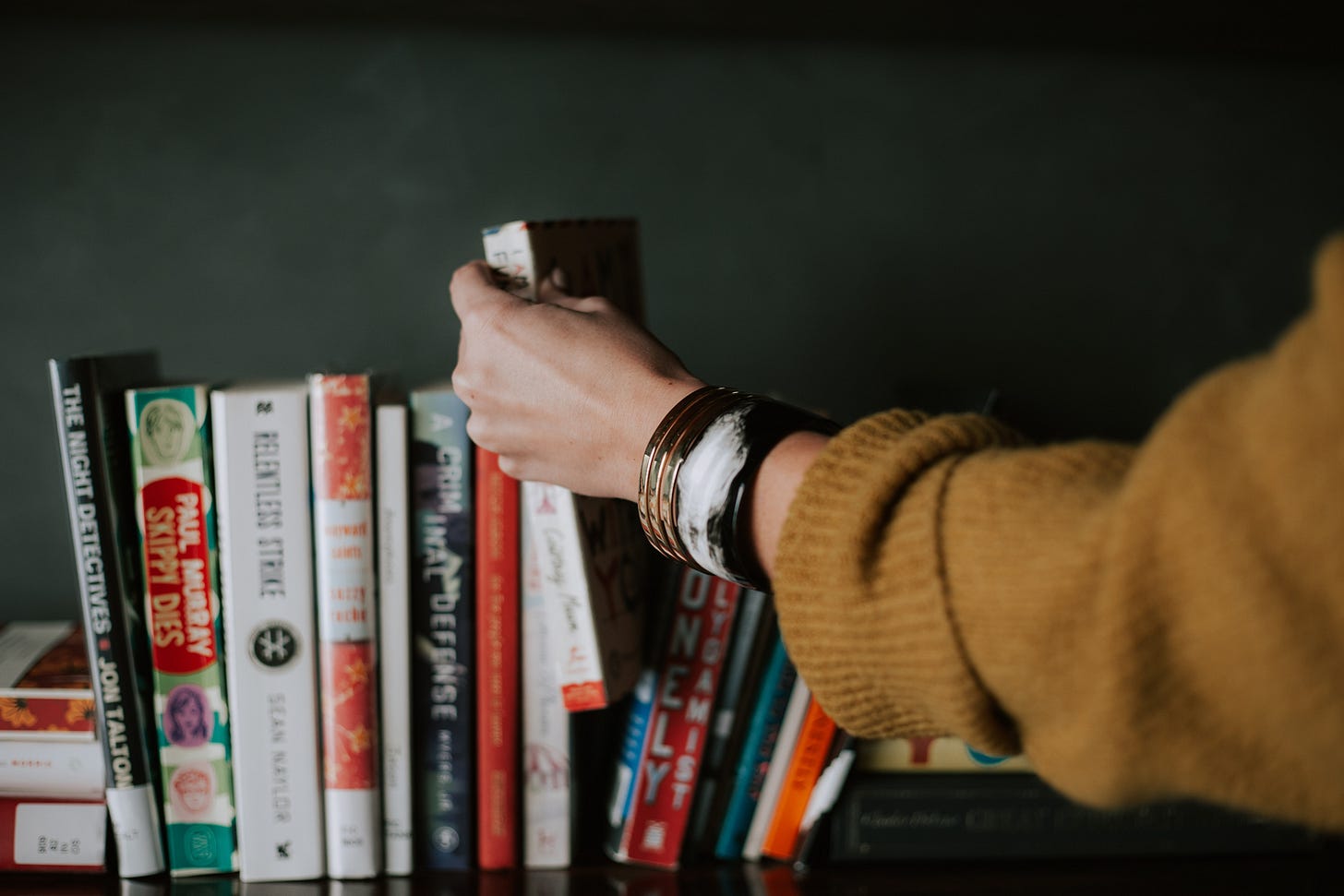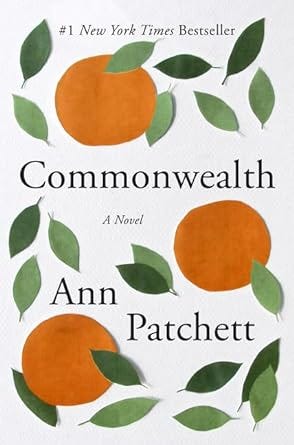
I first started logging what I read in 2020. Based on four years of data, I read 20ish books per year. In 2020 and again in 2021 I read mostly nonfiction, though not by a large margin. Last year that flipped and I read more novels, mostly inspired by my book-hungry teen. That trend continued this year – I read 7 nonfiction books and 13 novels.
And here’s what was on my Kindle this year …
Nonfiction
Israel: A Concise History of a Nation Reborn by Daniel Gordis: In preparation for our family trip to Israel I wanted to read a basic history. I’m really glad I did, both to enhance my experience of that trip but also because it’s helped me better understand what is happening now. At 553 pages I’m not sure I’d describe this book as “concise” but when you are telling the history of a region that has been central to human history since nearly the beginning of time that’s probably as concise as it gets. It is important to note that this book was published in 2016, so to understand the last eight years, which are significant to the current situation, you will need to look to other sources.
My Kitchen Year: 136 Recipes That Saved My Life: A Cookbook by Ruth Reichl: I’m a huge fan of Reichl and have read many of her memoirs (my favorite was Garlic and Sapphires about her time as the restaurant critic for The New York Times). My Kitchen Year is a memoir of the year following her dramatic ouster from Conde Nast when they very suddenly shut down Gourmet magazine. (So suddenly that the November issue, always the biggest in food, which had been finished was never even printed.) Processing and healing from the trauma of corporate betrayal included a lot of cooking, so it is also a cookbook full of amazing recipes. I read it on a Kindle but have considered actually buying the hardcopy because the recipes looked so delicious. I also highly recommend listening to Reichl’s interview on Wiser Than Me with Julia Louis-Dreyfus.
The Women of NOW: How Feminists Built an Organization That Transformed America by Katherine Turk: I will diction a fiction book very quickly if I don’t like the writing, but with nonfiction I’m a little more forgiving if the history being told is interesting. This book is an example of that; the writing was only okay. But what a fascinating history! Turk tells the story of the founding of NOW through three women who are not the most well-known or famous. Of course Betty Friedan makes many appearances, but she’s not the center of the story. It’s a comprehensive history that illuminates the triumphs and challenges of the organization. Also a bracing reminder of how much worse off women were – and a call to action to fight against the movement to reverse the gains we’ve made.
Real Self-Care: A Transformative Program for Redefining Wellness (Crystals, Cleanses, and Bubble Baths Not Included) by Pooja Lakshmin, MD: The one and only viral column I ever wrote for Forbes was titled Self-Care Is Not An Indulgence. It's A Discipline. I wrote it at the end of 2017 when it felt like all around me there were articles aimed mostly at wealthy white women to “practice self-care” when in reality the goal was either to sell something or to persuade the women with proximate power to white male supremacy to use that power in service of the same. More importantly, the goal always seemed to be to get these women to continue doing all the things they were doing, but maybe have some chocolate or get a massage to feel a bit better about how overwhelmed we might be. (And if they could also quit complaining about being overwhelmed, so much the better.) Dr. Lakshmin’s book is a longer – and much more expert – explanation of the need to rethink the concept of self-care. What I love most about Dr. Lakshmin’s work – and something I did not do in my column – is how she connects to the system-level failures that make any individual solutions meaningless and ultimately ineffectual. Again, a call to action to agitate for social change. That said she does offer ideas for how to practice real self-care, even within a very broken system.
The Perfectionist's Guide to Losing Control: A Path to Peace and Power by Katherine Morgan Schafler: I was made aware of this book because of an author interview on Holly Whitaker’s Substack. Whitaker’s description of the book as not being “self-help” but really “self-acceptance” was what hooked me in. Schafler is a therapist who specializes in working with high-achieving women who are often accused by those around them of being “perfectionists” and “control freaks.” Let’s just say I found a lot of food for thought.
You Could Make This Place Beautiful: A Memoir by Maggie Smith: In 2016 Maggie Smith wrote a poem, “Good Bones,” that, as we used to say, “broke the internet.” It propelled her to a kind of fame that rarely happens to poets. You Could Make This Place Beautiful – a line from the poem – is a lyrical, moving, evocative memoir of the dissolution of her marriage. It led me to also read Keep Moving: Notes on Loss, Creativity, and Change, an earlier book of aphorisms she posted to Twitter during and immediately following the divorce.
Fiction
For me, 2023 was all about fiction – so much delicious fiction. With few exceptions I truly loved all of these books.
Tomorrow and Tomorrow and Tomorrow by Gabrielle Zevin: This book seemed to be everywhere and I see why. It was exceptional.
The Witch Hunt by Sasha by Peyton Smith: The sequel to The Witch Haven which I read at the end of 2022. Not quite as good as the first, but fun and worth the read.
The Many Daughters of Afong Moy by Jamie Ford: This one I read for a book club and I’m not sure I would have chosen it on my own but it was very good. Inventive in its use of time.
Age of Vice by Deepti Kapoor: This book was a recommendation from Roxane Gay’s Substack who introduced it by writing “I love long, dense novels that tell a sprawling, epic story. Give me a list of characters and a map at the beginning. Show me that family tree. I am here for it. Generational saga? Sweeping narrative that spans decades? Even better.” I am also a sucker for these kinds of novels and this was one I truly couldn't put down (which came in handy when I had jet lag in Tel Aviv).
Commonwealth and Tom Lake by Ann Patchett: Brandon Taylor recommended Commonwealth on Twitter and it reminded me that I generally love Ann Patchett and haven’t read her in awhile. This might have been my favorite book of the year and made me immediately reserve her new one, Tom Lake, at NYPL. It was well worth the six month wait. I might have to put the rest of her novels on the top of my TBR pile for this year.
Signal Fires by Dani Shapiro: Another book club read. It was fine but I can't say it’s on my recommended list. Somehow both overly dramatic and underwhelming. A few lovely moments kept me going. The characters were also great, they just deserved to be in a slightly better story.
Lessons in Chemistry by Bonnie Garmus: Another buzzy book I’m glad I made time to finally read. So, so good. And, much like the history of NOW, a bracing reminder of what life used to be like for women. An interesting example of how fiction can reveal truth in a different way than nonfiction. There’s a visceral power to a great novel that is difficult for all but the most lyrical nonfiction to achieve.
Tell the Wolves I'm Home by Carol Rifka Brunt: I can’t remember how I found this book, but it was great. The narrator is a teen girl in the 80s who’s gay uncle is dying of AIDS. It’s a coming of age story, but it’s so much more than that. And another a reminder of a time that was much worse than the present. I recalled, viscerally, the fear and panic that set in around AIDS in the late 80s into the early 90s and the hatred that redounded to the gay community as a result. Thinking about the triumphs we’ve seen in gay rights since then made me hopeful, even as I continue to worry about attempts to turn back the clock.
The Golem and the Jinni and The Hidden Palace by Helene Wecker: Another book club selection that I loved. It turns out that a golem – a mythical figure in Judaism who can do their master’s bidding by feeling what he wants – is the ultimate empath and therefore the perfect vehicle to illuminate the condition of women. It was so good I read the sequel – The Hidden Palace – which was good, but not quite as good as the first.
A Long Walk to Water: Based on a True Story by Linda Sue Park: My 14-year-old read this in school and kept nagging me to read it. I’m so glad I did. A story of triumph over the most harrowing circumstances and a powerful reminder of how big of a difference one person can make.
A Scatter of Light by Malinda Lo: Last year I read Last Night at the Telegraph Club at the behest of my 16-year-old and we both eagerly gobbled up Lo’s new offering this year. While not as incandescent as Telegraph Club, it was definitely worth a read if you enjoy a good and poignant coming of age novel.





